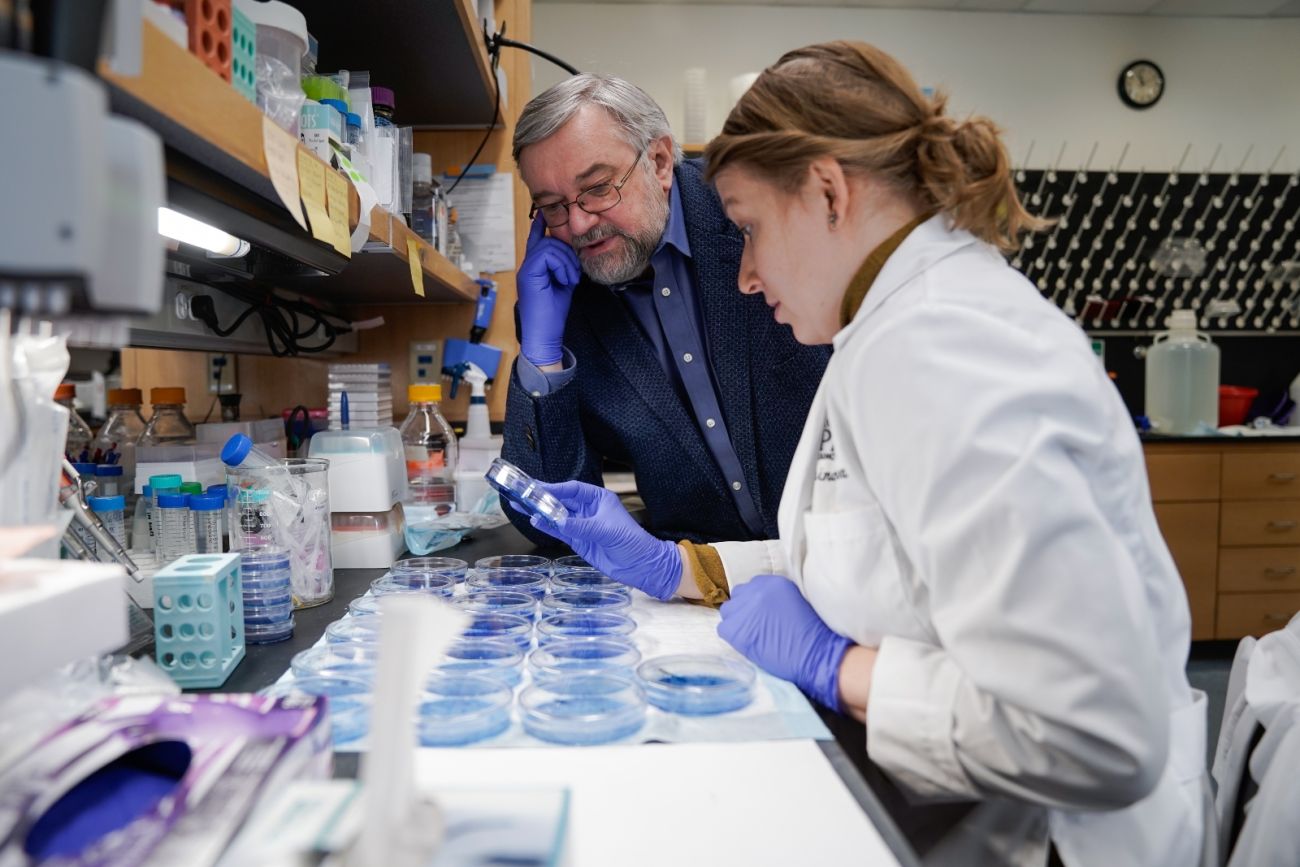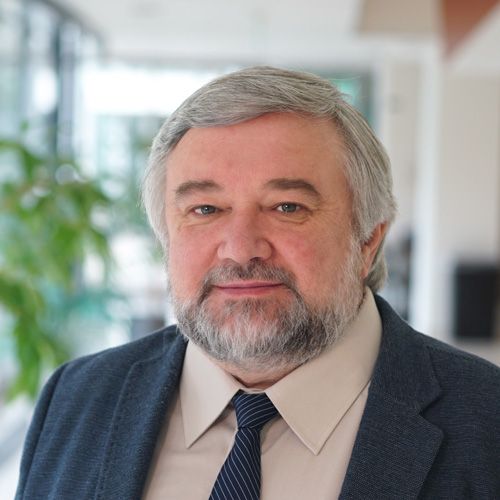Newly published work demonstrates age reversal in an experimental medical intervention
- Blood test looked at variable called dynamic frailty indicator
- Findings could help to better understanding of human aging and disease
- Work is relevant in efforts to improve quality of life in cancer patients, sur
BUFFALO, N.Y. — Researchers from Roswell Park Comprehensive Cancer Center, in collaboration with Gero and Genome Protection Inc., recently published new work in Nature Communications that demonstrates the power of artificial intelligence (AI) combined with analytical tools borrowed from the physics of complex systems to provide insights into the nature of aging, resilience, and future medical interventions for age-related diseases including cancer.
Modern AI systems exhibit superhuman-level performance in medical diagnostics, like identifying cancer on MRI scans. For this project, the research team went one step further and used AI to figure out principles that describe how the biological process of aging unfolds in time.
The researchers trained an AI algorithm on a large dataset composed of multiple blood tests taken along the life course of tens of thousands of aging mice to predict the future health state of an animal from its current state. The artificial neural network applied by the research team precisely projected the health condition of an aging mouse with the help of a single variable, which was termed dynamic frailty indicator (dFI) that accurately characterizes the damage that an animal accumulates throughout life.
“Mice usually live about 100 weeks (two years). We noticed that already at the age of 25 weeks, animals lose resilience, the ability to recover from damage that occurs in the course of natural aging. This creates conditions for progressive damage accumulation, as reflected by the exponential growth we observed in dFI. The damage doubling time we observed appeared to be the same as the mortality rate doubling time. Thus, the dynamics of dFI explained the acceleration of death risk and predicted the remaining lifespan of an animal,” Konstantin Avchaciov, PhD, the study’s first author and Senior Researcher with Gero, explains.
In addition, dFI was observed to accurately track the effects of treatments and lifestyle changes on longevity. For instance, it predicted sex-specific aging acceleration caused by a high-fat diet.
“Most importantly, the loss of resilience documented in this study means that anti-aging interventions may produce long-lasting age-reversal effects. Thus, we show that even a short treatment with rapamycin — which has been shown in previous preclinical studies to extend life — produces a reduction in damage markers such as dFI that persist long after the end of treatment,” says Peter Fedichev, PhD, Co-Founder and CEO at Gero.
The authors expect that their findings will help lead to better understanding of human aging and diseases.
“A key point to underscore is that dFI came out of the analysis of hematological parameters, reflecting the critical role that blood, and particularly its myeloid components, hold for aging. Our findings are in line with the conclusions suggested by numerous earlier experimental observations, thus confirming a biological sense of this variable. We expect that dFI will be applicable to the analysis of human data and may help to reveal both aging-accelerating and aging-decelerating conditions for developing antiaging treatments — making this work highly relevant for efforts to improve the quality of life of cancer patients and cancer survivors dealing with the short- and long-term effects of cancer treatment,” says Andrei Gudkov, PhD, DSci, Chair of the Department of Cell Stress Biology at Roswell Park Comprehensive Cancer Center, Co-Founder of Genome Protection Inc., and co-author of the manuscript.
“The volume of available medical and genetic information this work may have significance for is mind-blowing. Future AI systems combining the recent breakthroughs in computer and physical sciences will unravel the intricate relationship between aging and chronic diseases and lead to the development of transformative medicines,” adds Dr. Fedichev.
The work builds off earlier findings demonstrating that most humans are resilient to aging-related damage until they approach age 60 and that the number of individuals exhibiting signs of the loss of dynamic stability increases exponentially with age. The authors note that the current findings appear to effectively model human late-life mortality and morbidity.
This international team has further investigations underway assessing the effects of drugs on resilience toward the goal of designing and developing effective interventions against aging and chronic diseases in humans.
###
About Roswell Park:
Roswell Park Comprehensive Cancer Center is a community united by the drive to eliminate cancer’s grip on humanity by unlocking its secrets through personalized approaches and unleashing the healing power of hope. Founded by Dr. Roswell Park in 1898, it is the only National Cancer Institute-designated comprehensive cancer center in Upstate New York. Learn more at www.roswellpark.org, or contact us at 1-800-ROSWELL (1-800-767-9355) or ASKRoswell@RoswellPark.org.
About Gero:
Gero is a preclinical-stage physics-enabled biotechnology company creating therapeutics against chronic diseases to slow human aging. Gero applies machine learning algorithms originating from the physics of complex systems to build clinically relevant disease progression models in real-world human data and identify novel therapeutic targets potentially applicable to several indications simultaneously. The in-human drug discovery approach allows us to avoid the “preclinical trap” and select the most efficient targets against human (not mice) diseases.
Gero’s research has been published in Nature Communications (1, 2, 3) and Science journals, covered by Scientific American, and recognized as one of Wikipedia’s most significant scientific achievements in 2021. For more information: https://gero.ai
About Genome Protection Inc.:
Genome Protection Inc. (GPI) is a clinical-stage biotechnology company developing antiaging and anticancer drugs by targeting mechanisms of intrinsic DNA damage and immunosenescence. Its broad R&D program involves the development of drugs suppressing endogenous retrotransposons and stimulating innate immune functions that decline with age. Both GPI’s research directions have reached clinical testing conducted in collaboration with physician scientists of Roswell Park Comprehensive Cancer Center and Mayo Clinic. For more information, see https://genomeprotection.com/.
Rebecca Vogt, Media Relations Specialist
716-845-4919; rebecca.vogt@roswellpark.org

